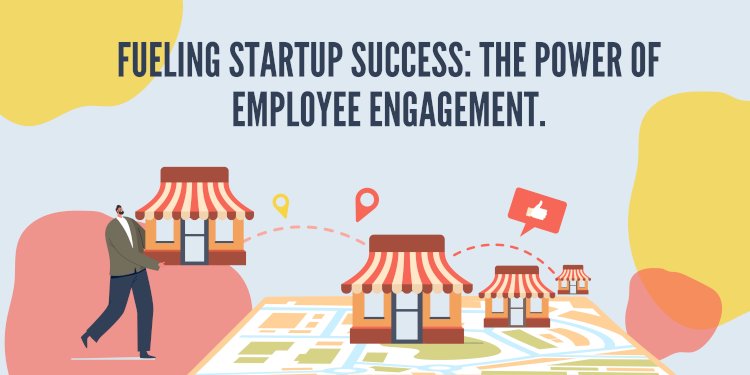Fueling Startup Success: The Power of Employee Engagement.
Employee engagement is essential for the success of startups, influencing productivity, innovation, retention, and overall growth. Engaged employees contribute more effectively to team collaboration, customer satisfaction, and building a positive company culture. They are also more likely to stay loyal, reducing turnover and fostering leadership development. Startups can enhance employee engagement by aligning individuals with the company's vision, recognizing contributions, offering growth opportunities, and promoting a healthy work-life balance. In the dynamic startup ecosystem, prioritizing employee engagement is key to ensuring resilience, innovation, and long-term success.

In the fast-paced world of startups, where every moment counts and resources are often limited, employee engagement plays a critical role in determining the success or failure of a venture. Startups thrive on innovation, dedication, and collaboration, all of which are deeply influenced by how engaged their employees are.
Let’s explore why employee engagement is a cornerstone for any startup’s growth and sustainability.

1. Boosts Productivity
Engaged employees are more focused and dedicated to their tasks. They take ownership of their responsibilities and consistently strive to achieve goals. For startups, where every team member’s contribution is crucial, high productivity driven by engagement can make a significant difference.
2. Encourages Innovation
Startups often operate in dynamic environments that demand creative problem-solving. Engaged employees are more likely to contribute innovative ideas and solutions, as they feel a stronger connection to the company’s mission and vision. This culture of innovation can help startups stay competitive and adapt to market changes.
3. Improves Retention
High turnover can be particularly challenging for startups, disrupting workflows and increasing hiring costs. Engaged employees are more likely to stay loyal to the company, reducing attrition rates and ensuring continuity in operations.
4. Enhances Team Collaboration
Employee engagement fosters a sense of community and trust among team members. In a startup, where teams are often small and closely knit, effective collaboration is vital. Engaged employees communicate openly, share knowledge, and work together seamlessly to achieve common goals.
5. Drives Customer Satisfaction
Happy and engaged employees naturally translate to better customer experiences. When employees are motivated and invested in their work, they go the extra mile to ensure customer satisfaction, which is essential for startups building their brand and reputation.
6. Strengthens the Company Culture
Startups are known for their unique and dynamic cultures. Employee engagement helps in creating and sustaining a positive workplace culture that attracts and retains top talent. It also instills a sense of purpose and belonging among employees, aligning them with the company’s values.
7. Supports Leadership Development
Engaged employees are more open to taking on leadership roles and responsibilities. For startups, this means developing future leaders internally, ensuring a steady pipeline of capable individuals to drive the company forward.
How to Foster Employee Engagement in Startups

-
Communicate the Vision: Ensure employees understand and align with the startup’s mission and goals.
-
Recognize Contributions: Acknowledge and reward employees for their hard work and achievements.
-
Provide Growth Opportunities: Offer training, mentorship, and career development programs.
-
Encourage Feedback: Create an environment where employees feel heard and valued.
-
Promote Work-Life Balance: Support flexible work arrangements to prevent burnout.

Employee engagement is not just a “nice-to-have” element for startups; it’s a necessity. Engaged employees are the driving force behind a startup’s innovation, resilience, and growth. By prioritizing engagement, startups can build a strong foundation for success, ensuring they not only survive but thrive in the competitive business landscape.
























